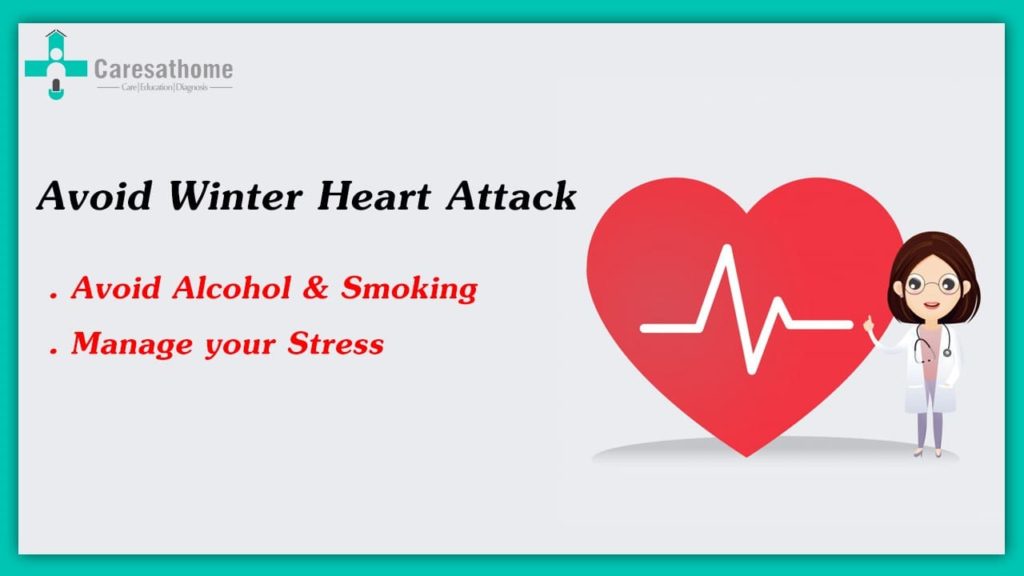How to Avoid a Heart Attack in Winter: Essential Tips for Heart Health
Winter can be a challenging time for heart health. The cold weather, coupled with lifestyle changes, can increase the risk of heart attacks, especially for those with pre-existing heart conditions. Research shows that heart attack rates tend to spike during the colder months, making it crucial to take preventive measures.
In this blog, we’ll discuss why heart attacks are more common in winter and provide essential tips to keep your heart healthy during this season.
Why Are Heart Attacks More Common in Winter?
- Cold Weather Constriction: Cold temperatures cause blood vessels to constrict, which raises blood pressure. This can put extra strain on the heart, increasing the risk of heart attacks, particularly in people with existing cardiovascular problems.
- Increased Physical Stress: Many people exert themselves physically during winter, especially with activities like shoveling snow or walking through icy conditions. For those unaccustomed to strenuous exercise, this sudden increase in physical activity can trigger a heart attack.
- Changes in Blood Composition: Cold weather can make the blood thicker and more prone to clotting, which can block arteries and lead to a heart attack.
- Seasonal Stress: Winter is also associated with increased emotional stress due to the holidays, financial strain, or feelings of loneliness. Emotional stress can elevate blood pressure and heart rate, contributing to heart problems.
Tips to Avoid a Winter Heart Attack
To reduce your risk of heart attacks during the winter, here are some essential lifestyle changes to follow:
1. Avoid Alcohol and Smoking
- Limit Alcohol Consumption: While it’s tempting to enjoy a warm drink during winter festivities, alcohol can increase blood pressure and lead to irregular heartbeats. Overconsumption of alcohol can also weaken the heart over time, raising your risk of heart disease.
- Quit Smoking: Smoking is one of the most significant risk factors for heart disease. It damages the lining of your arteries, leading to a build-up of fatty materials (atherosclerosis) that can cause heart attacks. Quitting smoking is one of the best ways to improve your heart health, especially in winter when blood vessels are already constricted due to the cold.
2. Manage Your Stress Levels
- Practice Stress-Relief Techniques: Stress can have a direct impact on your heart health by raising blood pressure and heart rate. Find healthy ways to manage your stress, such as practicing mindfulness, meditation, deep breathing exercises, or yoga.
- Take Time to Relax: Winter can be a busy time with holiday preparations and end-of-year work deadlines, but it’s important to schedule time to relax and recharge. Avoid overcommitting yourself and remember to unwind to maintain your heart health.
3. Dress Warmly to Stay Safe
- Layer Up: Cold exposure can cause your body to lose heat quickly, making your heart work harder to maintain body temperature. Always dress in layers and wear a hat, gloves, and a scarf to protect yourself from the cold and avoid undue stress on your heart.
- Warm-Up Before Exercise: If you’re engaging in outdoor activities like shoveling snow or taking a brisk walk, ensure you warm up indoors first. Sudden, intense physical exertion in the cold can increase your risk of heart attack.
4. Eat a Heart-Healthy Diet
- Include Healthy Fats: Omega-3 fatty acids found in fish, nuts, and seeds are excellent for heart health. They help reduce inflammation and keep blood pressure in check.
- Avoid Excess Salt and Sugary Foods: Holiday treats may be tempting, but excessive consumption of sugary and salty foods can lead to high blood pressure and weight gain, both of which are risk factors for heart disease.
5. Monitor Your Health Regularly
- Check Your Blood Pressure: Regularly monitor your blood pressure, especially during the winter. High blood pressure often has no symptoms but is a major risk factor for heart attacks.
- Consult Your Doctor: If you have a history of heart disease, schedule a check-up with your doctor before winter arrives. They may recommend medications or lifestyle changes to help protect your heart during the cold season.
Conclusion
Winter is a beautiful season, but it’s also a time when heart attacks become more common due to the cold weather and increased stress levels. By avoiding alcohol and smoking, managing stress, dressing warmly, eating a healthy diet, and staying mindful of your heart health, you can reduce your risk of a heart attack during the winter months.
Take these preventive measures seriously, and enjoy a heart-healthy winter!

